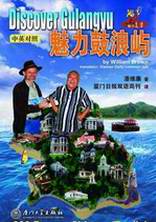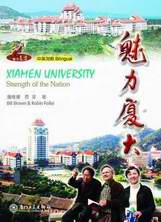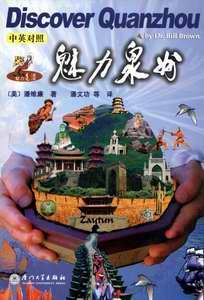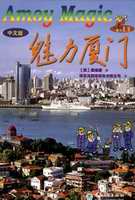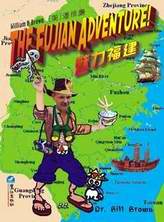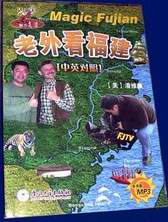![]() Click
to
Access
Click
to
Access
AMOY MAGIC SITE from
OUTSIDE China
![]() Click
to Access Amoy
Magic Site from
Click
to Access Amoy
Magic Site from
INSIDE
China ![]()
TRAVEL LINKS
![]() Xiamen
Xiamen
![]() Gulangyu
Gulangyu
![]() Jimei
Jimei
![]() Tong'an
Tong'an
![]() Jinmen
Jinmen
![]() Zhangzhou
Zhangzhou
![]() Quanzhou
Quanzhou
![]() Wuyi
Wuyi
![]() #1Fujian
Sites!
#1Fujian
Sites!
![]() Fujian
Foto Album
Fujian
Foto Album
![]() Books
on Fujian
Books
on Fujian
![]() Readers'Letters
Readers'Letters
![]() Ningde
Ningde
![]() Zhouning
Zhouning
![]() Longyan
Longyan
![]() Sanming
Sanming
![]() Putian
Putian
![]() Bridges
Bridges
![]() Travel
Info,
Travel
Info,
![]() Hakka
Roundhouses
Hakka
Roundhouses
![]() Travel
Agents
Travel
Agents
MISC. LINKS
![]() Amoy
People!
Amoy
People! ![]()
![]() Darwin
Driving
Darwin
Driving ![]()
![]() Amoy
Tigers
Amoy
Tigers
![]() Chinese
Inventions
Chinese
Inventions
![]() Tibet
in 80 Days
Tibet
in 80 Days![]()
![]() Amoy
Vampires!
Amoy
Vampires!
![]() Dethroned!
Dethroned!
![]()
![]() Misc.Writings
Misc.Writings
![]() Latest
News
Latest
News
![]() Lord
of Opium
Lord
of Opium
![]() Back
to Main Page
Back
to Main Page
Copyright 2001-7 by Sue Brown & Dr.
Bill ![]() Order
Books
Order
Books
Note:
Please click thumbnails
for larger photos!!
DAVID ABEEL--Extract from Memoirs
Thanks to
 Richard
Anderson, descendant of David Abeel, for photos of Abeel and the grave
(some of which he has posted at www.findagrave.com)
Richard
Anderson, descendant of David Abeel, for photos of Abeel and the grave
(some of which he has posted at www.findagrave.com)
![]() Return
to Abeel's Bio
Return
to Abeel's Bio
Kolongsoo (Gulangyu), March 28, 1844
��I begin this letter to have it in readiness for the first opportunity. It must be sent to Macao, there to await the first ship, which ship mail sail on its arrival or several months after. In regard to communication, I feel that I had made another remove from you. In the favorable monsoon we are only about thirty-six of forty-eight hours from Macao; but this distance keep us in as much ignorance of the arrival and departure of ships there, as if we were so many days away. I wrote you soon after our arrival. Everything has gone on prosperously since. The repairs and necessary improvements of the house are finished. We have furnished it in missionary style, with the cheapest articles.
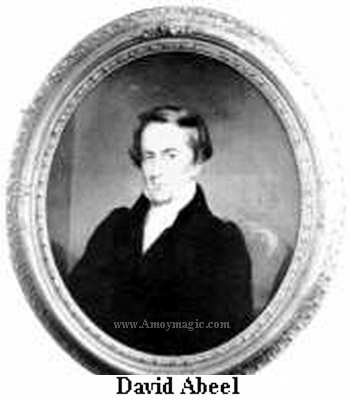 April
5.��For several evenings, I have either been exhausted or engaged at the
usual time for writing. During this interval, we have made our first visit
to the city of Amoy. We went in company with
the chief man who comes to this place. He took us through a few streets
to his own house, where he gave us a sumptuous Chinese dinner which made
us both sick. There were about a dozen different courses, each dish consisting
of a mixture of several kinds of meats, fish, and vegetables, in a variety
of combinations. When we came away, he sent with us a present of tea and
Windsor soap. He spent several years in visiting different settlements
of the English and Dutch, which accounts for his having the soap. On our
way through the streets we attracted great attention, and drew together
a crowd of the idle and curious, but they did not attempt to molest us.
Some boys attempted to frighten us by crying out, ��Seize them, seize
them.�� We were struck with the number of vessels of all sizes; and with
the compactness of the buildings, and the crowded population of the place.
This is the great feature of China, and this renders it so important as
a missionary field.
April
5.��For several evenings, I have either been exhausted or engaged at the
usual time for writing. During this interval, we have made our first visit
to the city of Amoy. We went in company with
the chief man who comes to this place. He took us through a few streets
to his own house, where he gave us a sumptuous Chinese dinner which made
us both sick. There were about a dozen different courses, each dish consisting
of a mixture of several kinds of meats, fish, and vegetables, in a variety
of combinations. When we came away, he sent with us a present of tea and
Windsor soap. He spent several years in visiting different settlements
of the English and Dutch, which accounts for his having the soap. On our
way through the streets we attracted great attention, and drew together
a crowd of the idle and curious, but they did not attempt to molest us.
Some boys attempted to frighten us by crying out, ��Seize them, seize
them.�� We were struck with the number of vessels of all sizes; and with
the compactness of the buildings, and the crowded population of the place.
This is the great feature of China, and this renders it so important as
a missionary field.
April 9.��My fellow
missionary leaves me in the morning for Macao, hoping soon to return with
Mrs. Boone and children. I shall be alone; but seasons of aloneness I
find to be profitable. I say seasons, for no missionary ought to be alone
in a station for a continuance. Lately we have had a spell of dull, damp
weather, which has prevented our doing much direct missionary work, but
we have no lack of visitors. To-day we hear there are seven Roman Catholic
priests on their way to this place. God reigns, and this must be our confidence.
We have come higher to do His work, and to carry out His plans. 
July 24, 1842. Wrote in his diary after his mother��s death (his father
having died not long before):
��Two days ago I received the afflictive news of my beloved mother��s demise.
I feel that it has rendered desolate the brightest scenes of earth. ��I
shall never see you again in this life,�� was one of her last expressions.��
Kolongsoo, August 2, 1842
��Since I last wrote the sad news of our great bereavement has reached
me. Though I never expected to see our dear departed mother again in the
flesh, yet I feel that I have lost my best, my firmest earthly friend;
and that the light which gave the greatest charm to my native place and
earthly home, has gone out. How desolate it must appear where she always
was, to give us such an affectionate welcome. Her��s was a mother��s deep,
unvarying love, and we could always calculate upon it. How pure and free
from selfishness it was. How the mind likes to dwell upon these qualities;
some of which, I have long thought, rendered her superior to any other
mother I eve rknew. I become overwhelmed with sorry when I think of our
loss.
��We will occupy the rest of this chapter in quoting extracts from the
journal of his labors at the new station at Amoy
and Kolongsoo. One fact imparts even
greater interest to the many pleasing incidents recorded. This is the
closing journal of Mr. Abeel��s missionary labors. When it was finished
his health entirely failed; and he came to the land of his fathers to
lay his bones with his kindred. And from his own expressions and the statements
of facts, it will be seen that this was the most successful part of his
missionary life. His knowledge of the language was more enlarged, and
his influence increased; so that he was able to preach the word, enjoying
the confidence of those to whom he dispensed it. Dark and mysterious was
that Providence which removed him from this field, when so well qualified
for his work.
May 17.��Today we were reading about the poor widow, whose small offering was cast into the treasury. My teacher attempted to illustrate the text by an anecdote. He said there was an old woman, who lived in a portion of this province, and who requested the privilege of putting down her name to a subscription for a bell. It was an offering to Budh, and the rich were giving of their abundance. When the old woman made her request, they looked with astonishment, and asked what she had to give. She took a cash, less than the thousandth part of a dollar, and handed it to the collector. He threw it with disdain into a pond of water, adding that he supposed from her request that she had more than that to give. She replied, and her reply has been a proverb since����One cash, cheerfully bestowed (from penury,) is as meritorious as tens of thousands (from abundance.��) The bell was cast, but it stones were most defective. It was recast, but with no better effect. At last, after many unsuccessful efforts, Budh appeared to the collector in a dream, and informed him that the bell would never give forth a good sound until the identical cash of the old woman was added to the materials. The pond was drained, the rejected cash found, the bell once more cast, and the tones were rich and clear����
June 1.��Yesterday, at the invitation of the senior naval officer, I embarked with him and other son board the iron steamer Medusa in the direction of Tang-Wa, the capital of the district in which Amoy is situated. Our course lay east of north. We had the island of Amoy on our right the greater part of the distance. For the first few miles, the hills wore the same rugged barren aspect which is characteristic of the coast of China. Fertility and cultivation grew upon us as we advanced. The mountains on the Amoy side gradually descended until the range was continued by arable hills, covered with green fields. In some places the villages were very numerous. The want of trees was the principal defect in the scenery, although there were some most luxuriant exceptions.
August 31.��This afternoon, we committed to the tomb the remains of our much-esteemed and deeply-regretted fellow-missionary, Mrs. Boone. She departed this life yesterday, about five, P.M. She had been delirious through the day, and partially so for two or three days previous. Before her illness became at all alarming, she expressed her apprehension that it would result in death, and ��set her house in order.�� She said she had no fear of the king of terrors, but felt an unshaken confidence in God her Savior. She was deeply impressed with the honor which God had conferred upon her, in calling her to the missionary work. This she expressed in strong language; and this she acted out in all her duties. I have known no one more energetic, efficient, and uniformly cheerful, than this devoted and beloved sister.��
September 9.��To-day, a steamer brings us the unexpected news of peace between Great Britain and China. The treaty quite equals our expectations. The opening of so many large cities to commerce and foreign intercourse��the appointment of consuls to whom alone their countrymen are to be amenable��the regulation of trade by a fixed and published tariff��the liberty, so often and effectually resisted, of having ladies accompany their husbands, are points gained, which will promote the interests of the missionary quite as much as that of the merchant.��
November 17.��We are greatly encouraged. Our number on the Sabbath was about fifty. After service, Yew-Ako, with about twenty friends, came for the same purpose. Mr. Boone, who was the Chinese preacher for the day, had a second service for them. Yesterday morning, an old man, who mistook the day for the Sabbath, came to our usual morning worship. His manner and conversation had impressed me favorably before. He wanted a new supply of books. He said he read the books we gave him every night and morning, at which times he prayed to the true God��.��
April 24, 1843.����I can scarcely conceive how any place can furnish greater facilities for spreading, far and wide, the truths of Christianity, than this station. There is no necessity of leaving the house; indeed, it is scarcely possible to do so. They come in successive companies, keeping us busy for several hours of almost each day, until we are quite often exhausted. At this moment they are sitting on each side of me, and have been surrounding me so much since I began to transcribe this journal, that I have had difficulty to proceed. Not wishing to have any leave the house untaught, I am frequently obliged to lay down my pen, that I may converse with them and give them books. After living in China, fettered and tongue-tied, to enjoy such perfect liberty, and so many advantages as we now have, is most delightful. Had we but fellow-missionaries enough to help us in our work, to open schools, establish out-stations in the surrounding country, and carry on a vigorous system of operations, what happy results might we not effect.
��But, alas! How sad the recent news from our native land. Few young men coming forward to devote themselves to the ministry; scarcely any to offer themselves a living sacrifice on the altar of missions. Fields the most extensive ever opened to the Christian church, now inviting the messengers of Christ to enter; the prayers of many answered in the most striking manner; and yet, scarcely any giving heed to the clear indications of Providence; very few responding to the Heavenly Call, ��Here am I, send me.����
Last missionary excursion
JINMEN
November 23, 1844
��We have just returned from a visit to Quemoy. It is the largest and most
projecting island which is passed in the approach to Amoy.
Our kind friend, the chief magistrate, assisted us in procuring a suitable
boat; and this to go to a place interdicted by treaties!
��We started a nine in the morning, and arrived at three in the afternoon. Our vessel could not approach within half a mile or more of the dry shore. When we arrived, a cloud of human beings were gradually moving out with the receding tide. They were picking up shell-fish and sea-weed, and whatever else they could turn to the least profit. A large proportion were women and girls. We were carried on men��s backs to the shore, and on their shoulders, (sedans,) when we returned. We were obliged to walk over a barren trace before we reached the chief town, Aou Poi. It proved to be by far the largest and most business-like place we have visited in the vicinity of Amoy. It has diverted the trade from the walled city, which lies some three or four miles in the interior, and was once the emporium of the island. Though rather late, we started for the city; but after traveling about half the distance, (myself being the only one in a sedan,) the pedestrian powers of some of our party began to fail, and it was concluded to defer the visit until we had more time for the examination of the island.
We were pleased with the gently undulating surface of the country. We saw no abrupt black hills, no immense granite rocks. The soil is very light, and the chief production is the sweet potato; an article far inferior, as cultivated in China, to that which is obtained in either of the southern or middle states of America. As usual, the eye caught a village almost wherever it turned.
��One object which we had in view in going to Quemoy was to obtain a correct idea of the salubrity of the island. I had often inquired about it, and had been led to believe that it was remarkably free from the fevers and other epidemics which are common in the neighboring places. The dryness of the soil, the absence of extensive paddy grounds, and the appearance of the entire face of the country, strengthened the impression which I had derived from others. There are many excellent situations for dwellings, and no doubt many dwellings in such situations might be obtained��.
��When God��s Spirit shall be poured out, and native converts and evangelists shall have been raised up to our assistance, what ample scope there will be for the employment of all their time and energies.
��Never before has the missionary work appeared so inviting��never have I been placed in such agreeable circumstances��never has labor been so easy, so animating��never have the prospects been so encouraging. I have lived through a part of China��s long night of exclusiveness, and have seen the morning spread itself upon her eastern mountains. �� Great as it the trial of leaving the place and the beloved companions in it, yet I have been spared to see so many hopes realized, and the dispensation which calls me away has been so mercifully delayed, that I have cause only for gratitude. Oh, that many young men may be constrained to go forth to this field, and assist in giving the Word free course, that it may be glorified among the people!��
He tried one more sermon to the Chinese, on the topic of ��Come unto me all ye that labor and are heavy laden, and I will give you rest.�� But was too weak, and returned to America to die.
��My increasing feeble health has brought death and heaven near. I trust I have nothing to fear. Simply to the cross I cling. Animating prospects of my Home. Am still afflicted by trying pains, but am praying and striving for patience with cheerfulness.��
Left Amoy December 19, 1844
By the advice of his friends, he embarked on the 14th of January, 1845, in the Natchez, Capt. Waterman, for the port of New York. So enfeebled was he at this time, that the night before his embarkation he feared to give way to the influence of sleep, lest his respiratory organs should cease to act.
On the 3rd of April he arrived at New York, after an absence of six years. He was then so exhausted and worn out by disease, that it hardly appeared as though he could survive from day to day; and it was with great difficulty that he could converse�� He was unwilling to use any anodynes, fearing that they might have the effect of benumbing his mental faculties, and thus of destroying his ability to perform and enjoy the great duties of religion; consequently he did not find that relief which is often obtained from the use of such expedients, by those who are in the last stages of pulmonary disease.
He died September
4, 1846, aged 42. Final diary, ��Death has no sting. Oh, may the Conqueror
continue with me till the close, and then !!!��-----
Click Here for Abeel's Bio
Please
Help the "The Amoy Mission Project!"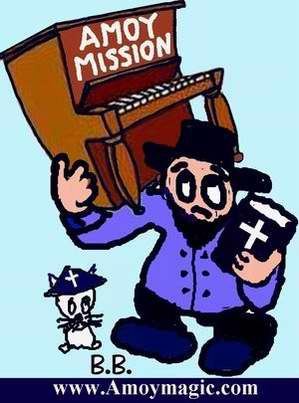 Please
share any relevant biographical material and photos for the website and
upcoming book, or consider helping with the costs of the site and research
materials. All text and photos will remain your property,
and photos will be imprinted to prevent unauthorized use.
Please
share any relevant biographical material and photos for the website and
upcoming book, or consider helping with the costs of the site and research
materials. All text and photos will remain your property,
and photos will be imprinted to prevent unauthorized use.
E-mail: amoybill@gmail.com
Snail Mail: Dr. William Brown
Box 1288 Xiamen University, Xiamen, Fujian PRC 361005
![]() Favorite
Fujian Sites
Favorite
Fujian Sites ![]() Fujian
Foto Album
Fujian
Foto Album ![]() Xiamen
Xiamen
![]() Gulangyu
Gulangyu
![]() Fujian
Guides
Fujian
Guides ![]() Quanzhou
Quanzhou
![]() Zhangzhou
Zhangzhou
![]() Longyan
Longyan
![]() Wuyi
Mtn
Wuyi
Mtn ![]() Ningde
Ningde
![]() Putian
Putian
![]() Sanming
Sanming
![]() Zhouning
Zhouning
![]() Taimu
Mtn.
Taimu
Mtn. ![]() Roundhouses
Roundhouses
![]() Bridges
Bridges
![]() Jiangxi
Jiangxi
![]() Guilin
Guilin
![]() Order
Books
Order
Books![]() Readers'
Letters New: Amoy
Vampires! Google
Search
Readers'
Letters New: Amoy
Vampires! Google
Search
Last Updated: October 2007
AMOY
MISSION LINKS
![]()
![]() A.M.
Main Menu
A.M.
Main Menu
![]() RCA
Miss'ry List
RCA
Miss'ry List
![]() AmoyMission-1877
AmoyMission-1877
![]() AmoyMission-1893
AmoyMission-1893
![]() Abeel,
David
Abeel,
David
![]() Beltman
Beltman
![]() Boot
Family
Boot
Family
![]() Broekema,
Ruth
Broekema,
Ruth
![]() Bruce,
Elizabeth
Bruce,
Elizabeth
![]() Burns,
Wm.
Burns,
Wm.
![]() Caldwells
Caldwells
![]() DePree
DePree
![]() Develder,
Wally
Develder,
Wally
![]() Wally's
Memoirs!
Wally's
Memoirs!
![]() Douglas,
Carstairs
Douglas,
Carstairs
![]() Doty,
Elihu
Doty,
Elihu
![]() Duryea,
Wm. Rankin
Duryea,
Wm. Rankin
![]() Esther,Joe
& Marion
Esther,Joe
& Marion
![]() Green,
Katherine
Green,
Katherine
![]() Hills,Jack
& Joann
Hills,Jack
& Joann
. ![]() Hill's
Photos.80+
Hill's
Photos.80+
..![]() Keith
H.
Keith
H.![]() Homeschool
Homeschool
![]() Hofstras
Hofstras
![]() Holkeboer,
Tena
Holkeboer,
Tena
![]() Holleman,
M.D.
Holleman,
M.D.
![]() Hope
Hospital
Hope
Hospital
![]() Johnston
Bio
Johnston
Bio
![]() Joralmans
Joralmans
![]() Karsen,
W&R
Karsen,
W&R
![]() Koeppes,
Edwin&Eliz.
Koeppes,
Edwin&Eliz.
![]() Kip,
Leonard W.
Kip,
Leonard W.
![]() Meer
Wm. Vander
Meer
Wm. Vander
![]() Morrison,
Margaret
Morrison,
Margaret
![]() Muilenbergs
Muilenbergs
![]() Neinhuis,
Jean
Neinhuis,
Jean
![]() Oltman,
M.D.
Oltman,
M.D.
![]() Ostrum,
Alvin
Ostrum,
Alvin
![]() Otte,M.D.
Otte,M.D.![]() Last
Days
Last
Days
![]() Platz,
Jessie
Platz,
Jessie
![]() Pohlman,
W. J.
Pohlman,
W. J.
![]() Poppen,
H.& D.
Poppen,
H.& D.
![]() Rapalje,
Daniel
Rapalje,
Daniel
![]() Renskers
Renskers
![]() Talmage,
J.V.N.
Talmage,
J.V.N.
![]() Talman,
Dr.
Talman,
Dr.
![]() Veenschotens
Veenschotens
. ![]() Henry
V.
Henry
V.![]() Stella
V.
Stella
V.
. ![]() Girard
V.
Girard
V.
![]() Veldman,
J.
Veldman,
J.
![]() Voskuil,
H & M
Voskuil,
H & M
![]() Walvoord
Walvoord
![]() Warnshuis,
A.L.
Warnshuis,
A.L.
![]() Zwemer,
Nellie
Zwemer,
Nellie
![]() Fuh-chau
Cemetery
Fuh-chau
Cemetery
![]() City
of Springs
City
of Springs
(Quanzhou, 1902!!)
![]() XM
Churches
XM
Churches ![]()
![]() Church
History
Church
History ![]()
![]() Opium
Wars
Opium
Wars
![]() A.M.
Bibliography
A.M.
Bibliography
![]() YMCA
Volunteer!
YMCA
Volunteer!
![]() XICF
Fellowship
XICF
Fellowship![]()
![]() Temples
Temples![]()
![]() Mosques
Mosques
![]() Christ
in Chinese
Christ
in Chinese
Artists'
Eyes
DAILY LINKS
![]() FAQs
Questions?
FAQs
Questions?
![]() Real
Estate
Real
Estate
![]() Shopping
Shopping
![]() Maps
Maps
![]() Bookstores
Bookstores
![]() Trains
Trains
![]() Busses
Busses
![]() Car
Rental
Car
Rental
![]() Hotels
Hotels
![]() News
(CT)
News
(CT)
![]() Medical
& Dental
Medical
& Dental
![]() Expat
Groups
Expat
Groups
![]() Maids
Maids
![]() Phone
#s
Phone
#s
EDUCATION
![]() Xiamen
University
Xiamen
University
![]() XIS(Int'l
School)
XIS(Int'l
School)
![]() Study
Mandarin
Study
Mandarin
![]() CSP(China
Studies)
CSP(China
Studies)
![]() Library
Library
![]() Museums
Museums
![]() History
History
DINING ![]() Tea
Houses
Tea
Houses
![]() Restaurants
Restaurants
![]() Asian
Asian
![]() Veggie
Veggie
![]() Junk
Food
Junk
Food
![]() Chinese
Chinese
![]() Italian
Italian
![]() International
International![]()
![]() Visas
4 aliens
Visas
4 aliens
RECREATION
![]() Massage!
Massage!
![]() Beaches
Beaches
![]() Fly
Kites
Fly
Kites
![]() Sports
Sports
![]() Boardwalk
Boardwalk
![]() Parks
Parks
![]() Pets
Pets
![]() Birdwatching
Birdwatching
![]() Kung
Fu
Kung
Fu ![]() Hiking
Hiking
![]() Music
Events
Music
Events
![]() Cinema
Cinema
![]() Festival&Culture
Festival&Culture
![]() Humor&
Humor&![]() Fun
Fotos
Fun
Fotos![]()
BUSINESS
![]() Doing
Business
Doing
Business
![]() Jobs!(teach/work)
Jobs!(teach/work)
![]() Hire
Workers
Hire
Workers
![]() Foreign
Companies
Foreign
Companies
![]() CIFIT
(Trade Fair)
CIFIT
(Trade Fair)
![]() MTS(Translation)
MTS(Translation)
![]()
Back to Top
